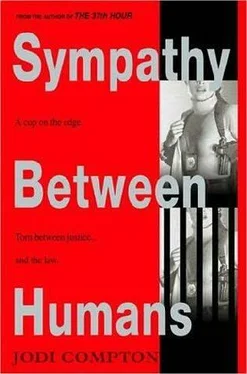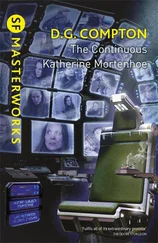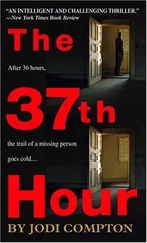“What started?” I asked.
“What the industry calls an ignition accident,” Cicero said. “Down in a mine, you hear roof falls a lot, and blasts, so the noise I heard that day didn’t bother me. It sounded like business as usual to me. The first I knew anything was wrong was when I felt the air reverse direction.”
I tilted my head, signaling incomprehension.
“Mines need to breathe, just like people,” he explained. “Ventilation systems ensure that excess blackdamp- that’s methane- is carried away from where miners are working and fresh air is carried in. In some mines, like ours, the fans create a wind of seven or eight miles an hour. That’s significant enough that you can feel it, but you’re used to it. You don’t notice it until it stops. It feels like the air has actually reversed direction. If you know what it means, it’s not a good feeling. Silas felt it the same time I did, and we looked at each other.
“That’s when we heard men yelling, and we stopped working and traveled to the scene. At the site, I saw that there were two men down, injured. There’d been a roof fall, which had caused a spark, which caused a small explosion. A fire was burning, but no one was dead. The foreman in that section saw Silas and me come out from behind a crosscut. He wanted Silas there, but when he saw me, I was still a new guy to him. ‘Not you,’ he said to me. ‘Get out of here.’ But Silas said, ‘You want him here. He’s a doctor.’ ”
Far below, a siren wailed; involuntarily I looked to the roof’s edge. It was the sound of my work; I was Pavlovian that way.
“To understand what happened next,” Cicero said, not noticing my moment of inattention, “you’ve got to understand a little about mine accidents. Often, the first ignition doesn’t kill anyone. But it does start a fire, and it also compromises the ventilation system. When the ventilation system stops working, methane builds up. It’s the subsequent explosions that kill people.
“There’s time to evacuate, but the problem is, not everyone does. Some miners travel toward the blast, instead of away, to render aid. That’s the ethic down there, to help each other. I don’t know if I stayed at the scene because I thought I had really become a miner, or because I was still a doctor, but for whichever reason, I was still at the face when the second explosion happened.” He stopped to reach over to the wine bottle again, poured a little more, drank.
“I was thrown, and when my vision cleared, I saw that the remaining guys were starting to evacuate,” he said. “They knew the situation was out of control. They wanted to get me out, but I couldn’t move my legs. The men said they’d send down rescue guys with a backboard, and if the paramedics were afraid to come down in a mine, they’d bring the backboard themselves.
“But the situation was still volatile, with a threat of more ignitions. I could hear the rescue personnel, up above where I was. Their superiors were saying they had to pull out. The rescuers radioed back that they still had a man down there to bring up, but they were overruled. I heard their noises growing fainter, and then they were gone.”
Cicero ’s knuckles seemed a little paler as he held the glass, the only sign of emotion.
“I was okay at first. I thought, Silas will make them come back for me, but then I saw Silas. He was dead. That was when it became real to me, that I could die down there.” He paused. “I was okay while my lamp held out. That was about thirty hours.”
“Thirty?” I said, amazed. “How long were you down there?”
“Sixty-one hours.” Cicero drained the rest of the wine. “About half that was in total blackness. Around that time, my imagination ran away with me. I was completely paranoid. I was sure that the paramedics had been lying when they’d said they were coming back. It was too dangerous; the company would just seal off that part of the mine and tell my brother that I’d been one of those who’d died instantly.”
He’d finished his wine, and was supine again.
“Of course, it didn’t happen that way. They came back,” Cicero said. “In the hospital, I told myself over and over that my spinal cord was in shock, that I’d walk again. It took a while to accept that I wouldn’t. I did that in rehab, the hardest part of which was getting the bill afterward. The mine declared bankruptcy after the accident, and we all lost our medical coverage.”
“Typical,” I said.
“There’s a lawsuit, on behalf of everyone injured, and I’m part of it. But it’s being dragged out in court. Meanwhile, my medical debts can charitably be described as ‘massive,’ and I now have a preexisting condition that insurers won’t cover.”
“But you’re in good health, aren’t you?” I interrupted.
“Right now, yes,” Cicero said. “But being a paraplegic, even a healthy one, isn’t cheap. And it makes you vulnerable to other health problems down the road. Those problems can be headed off with preventive care and physical therapy-”
“Which an insurer won’t pay for, because it’s part of a preexisting condition,” I finished for him.
“Exactly. Right now, I have some basic medical assistance for the indigent. If I got a job, I wouldn’t be eligible for it any longer, and then my noncovered health-care costs would subsume a large part of any income I’d make. I’m in that rare situation where getting employment would actually drag me down, not lift me up.”
I’d expected a story along these lines, but hadn’t anticipated how completely he was trapped.
“Other than medicine, from which I am barred,” Cicero said, “there’s nothing I’m equipped to do that would bring home anything close to what I need to survive without adequate health insurance. And if I did find work, there is one hospital, two clinics, and a number of medical professionals with claims to my future earnings. Right now, I’m referring my creditors to the legal precedent of Blood v. Turnip .”
I said the necessary, inadequate thing. “There’s got to be some way to get around the rules. Somebody’s got to see that the situation’s ridiculous. This isn’t supposed to happen.”
Cicero laughed. “No, it’s not,” he said. “It’s the result of a daisy chain of misfortunes. If only I weren’t banned from the only profession in which I can make a viable income. If only I hadn’t chosen that particular mine to work at. And so on.
“Everyone does see it’s ridiculous. Finding a way around it is a different story. The medical social worker at the rehab clinic in Colorado decided I should come to Minneapolis, because my brother Ulises was here. Once here, I was assigned a caseworker who was 23 and stumped. She got me disability checks, and that was it. It’s not her fault. The system isn’t set up to handle individual circumstances. Nobody is authorized to change the rules or interpret the subtleties. Everybody would like to help you, but no one actually can. ”
“That can’t just be the end of it,” I said, turning my palms up, fingers splayed.
Cicero surveyed me. “You don’t cohere sometimes,” he said. “You seem so world-weary on the surface, but under the surface you have these veins of naive faith in the system.” He shrugged. “But I’ve told you a good deal more than I thought I would, and I still didn’t answer your original question.”
“What original question?” I honestly couldn’t remember.
“Exactly,” Cicero said. “I was telling you about the mine accident. What I might not have made clear was that I spent sixty-one hours lying in a space with dimensions only slightly more generous than a grave.” He paused. “Since then, I have a very hard time with enclosed spaces. I’m not agoraphobic, I’m claustrophobic. It’s why I rarely go out.”
Читать дальше












